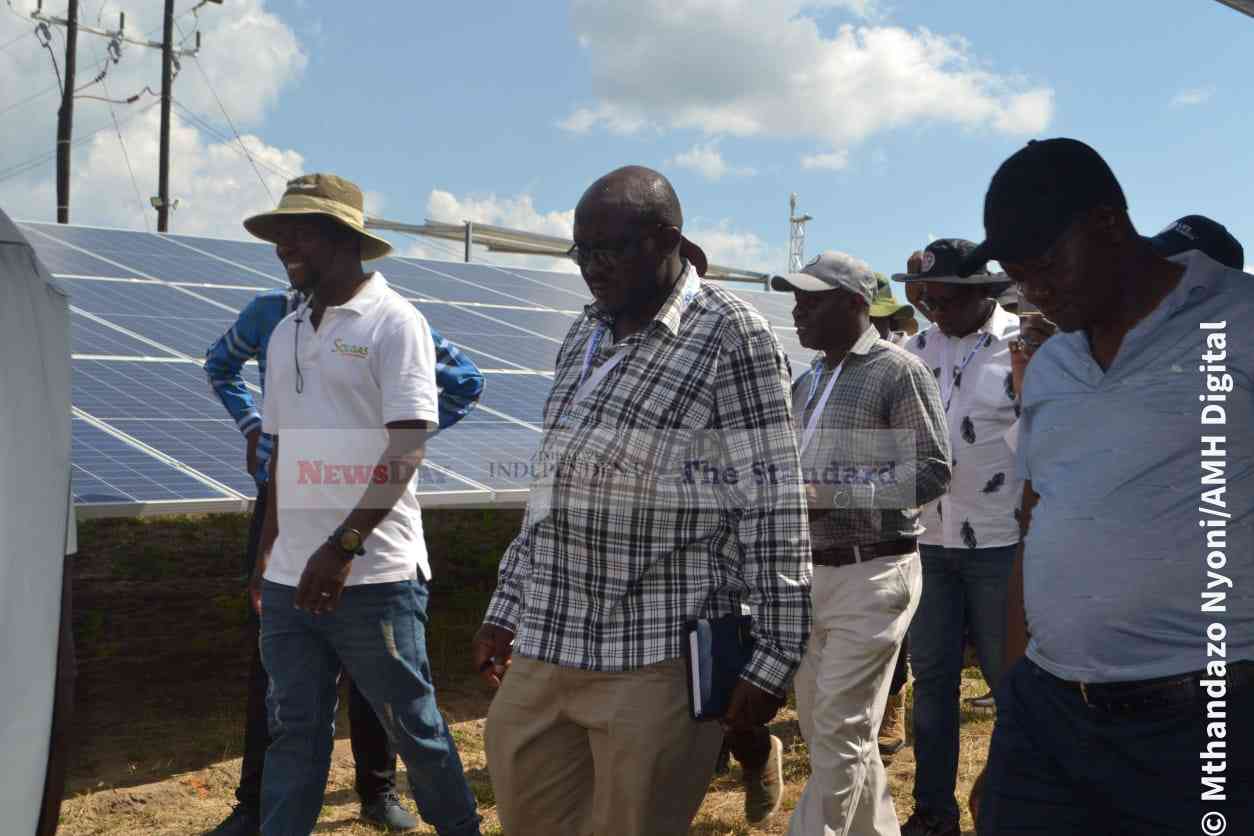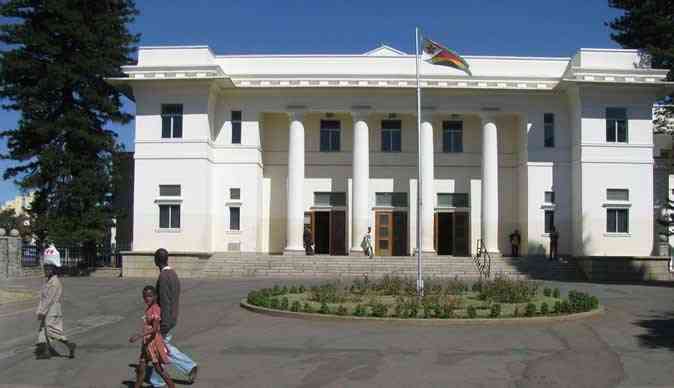
THE hugely successful fourth edition of the International Renewable Energy Conference and Expo 2023 ended yesterday in the resort city of Victoria Falls.
The four-day conference was attended by some of the world's top energy experts, financiers, green energy entrepreneurs and investors to discuss the theme Managing The Future — Clean Energy Possibilities.
The event was jointly organised by Alpha Media Holdings (AMH) — publishers of The Standard, NewsDay, Zimbabwe Independent and Southern Eye — in partnership with the Energy and Power Development ministry.
President Emmerson Mnangagwa officially opened the event on Thursday, stressing the importance of renewable energy in helping to tackle the globe’s climate crisis.
Mnangagwa also expressed alarm over the theft and vandalism of the country’s electrical infrastructure as he urged academic institutions to find a lasting solution to the problem.
“Stakeholders in the criminal justice system, together with communities throughout the country, are urged to collaborate more closely towards ending such criminal and treasonous acts,” Mnangagwa said. He encouraged global investment in the energy sector and noted that his government had created an enabling environment for independent power producers (IPPs) to thrive.
Mnangagwa commended those taking advantage of opportunities in the energy and power sector by leveraging assets from insurance and pension funds.
He also challenged other financial institutions in the country to be more creative in their funding mechanisms and support investments in the energy sector.
- Why we do what we do at AMH: Mafukidze
- Why we do what we do at AMH: Mafukidze
- News in depth: Zimbabwe’s push for shift to renewable energy sources gathers momentum
- News in depth: Zimbabwe’s push for shift to renewable energy sources gathers momentum
Keep Reading
Mnangagwa stressed the importance of supporting sectors such as mining and agriculture, given their key role in the country’s economy.
He also urged players in the energy industry to take up this challenge and help drive the nation’s economic growth.
The conference saw some of the brightest minds in the renewable energy sector discuss the latest developments in the field and make suggestions on how to best integrate renewable energy sources into existing energy systems.
Discussions were held on various topics such as the technologies in renewable energy, solar and hydrogen energy, financing and funding of energy projects, marketing energy transmissions, energy efficiency, transition into the future, the importance of energy storage and more.
On the last day of the conference, a number of deals were struck between energy companies and investors, while the Energy and Power Development ministry announced several new initiatives that will help further support the growth of clean energy technologies in the country.
An agreement worth US$300 million was signed during the conference by the French IPP HDF Energy to build Zimbabwe’s first utility scale green hydrogen power plant, known as Middle Sabi Renewstable, inside the Chipangayi Renewable Energy Technology Park (RETPark). RETPark is a multi-project, multi-technology and multi-investor park established in 2016.
HDF Energy is developing several other multi-million euro-projects of this kind in various countries such as Indonesia, Mexico, Australia, Barbados, South Africa and Namibia.
HDF director for southern and east Africa, Nicolas Lecomte said the electricity demand in the country was very high, partly because of the growth in demand by the productive sector, a positive sign for Zimbabwe’s future.
He said their solution was particularly suitable, not only to supply the necessary electricity, but also the network services to improve the stability and operating conditions of the electrical grid.
Lecomte said the deal was a key step in their engagement with Zimbabwe, demonstrating HDF’s commitment. “HDF expects to... start construction in 2024/25,” he said.
Zimbabwe Electricity Transmission and Development Company (ZETDC) acting managing director, John Diya said: “This is an encouraging milestone for ZETDC as it comes as government is encouraging the transition to renewable energy.
“We are currently implementing initiatives to ensure security of electricity supply. Electricity is a key economic enabler, and we welcome such a partnership in a bid to bridge the demand/supply gap.”
At the end of the conference, a number of resolutions were made, including that power utility Zesa Holdings should strengthen the grid and protect renewable energy plants from load shedding so as to allow them to adequately supply the grid with power.
Additionally, the Energy ministry was asked to quickly develop and launch an energy efficiency policy and e-mobility framework before June 2023. Furthermore, feasibility studies were suggested to be done at renewable energy generations sites that have been identified in the Zambezi Basin.
Soltrain, United Nations Development Programme and other partners’ solar water heating business proposal was also considered, resulting in the Energy ministry being urged to seek funding for the National Solar Water Heating Programme, as well as to review solar water heating regulations to align them with the country’s Constitution.
Zesa was urged to take advantage of the various rooftop and ground mounted systems installed by individuals, home owners, farmers and cooperates to mop-up additional capacity from consumers and launch a campaign to reduce connection hurdles.
Moreover, the ministry and its parastatals were urged to amend the net metering regulations to allow for virtual net metering and financial rewards for those with excess capacity at their premises.
Government was also encouraged to develop a strategy on green hydrogen to create awareness and promote the transition to clean energy technologies and incorporate the development of green hydrogen strategy into the 2024 budget to become the first African country to build a green hydrogen plant.
The Energy ministry was implored to lobby for the establishment of escrow accounts to cover foreign obligations of exporters and IPPs, as well as to prioritise the energy sector and expedite foreign currency allocations at the auction floors.
Additionally, the ministry was implored to lobby for value-added tax exemption on renewable energy equipment to reduce costs.
The conference recommended that government should value-add energy minerals, such as the platinum group of metals, copper, cobalt, manganese, nickel, chrome, zinc, and graphite, before exporting them.
Government was asked to give preference to local experts with proven expertise in developing energy projects, as well as to work with international consultants in developing bankable projects.










